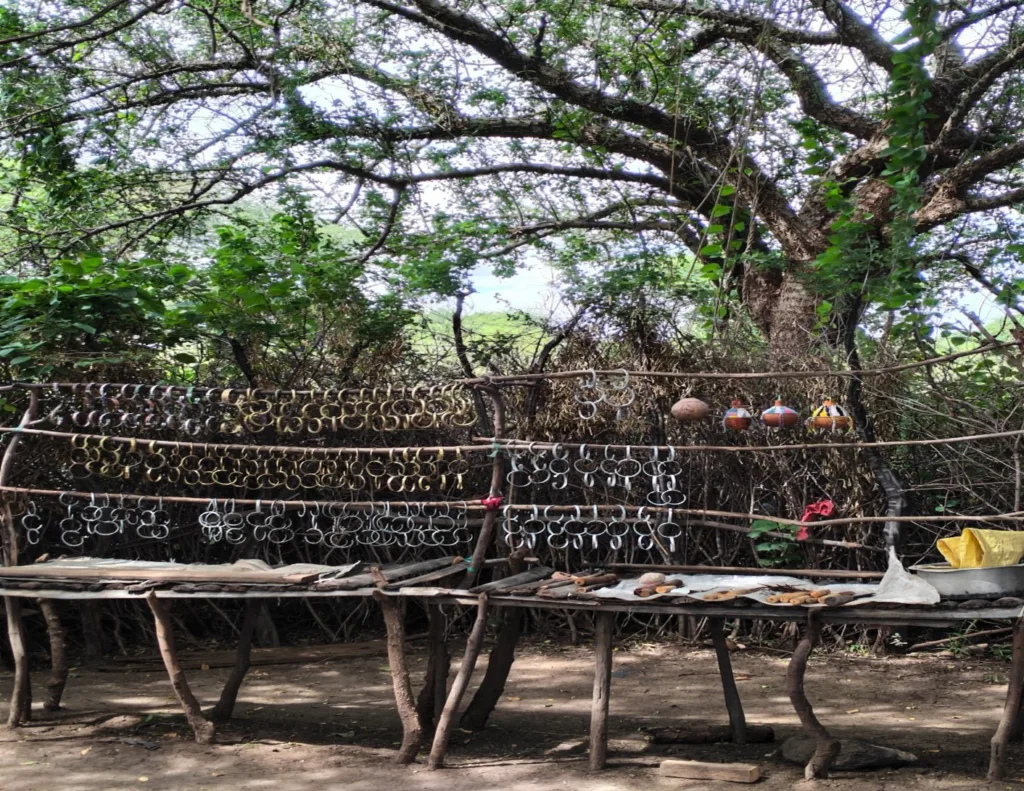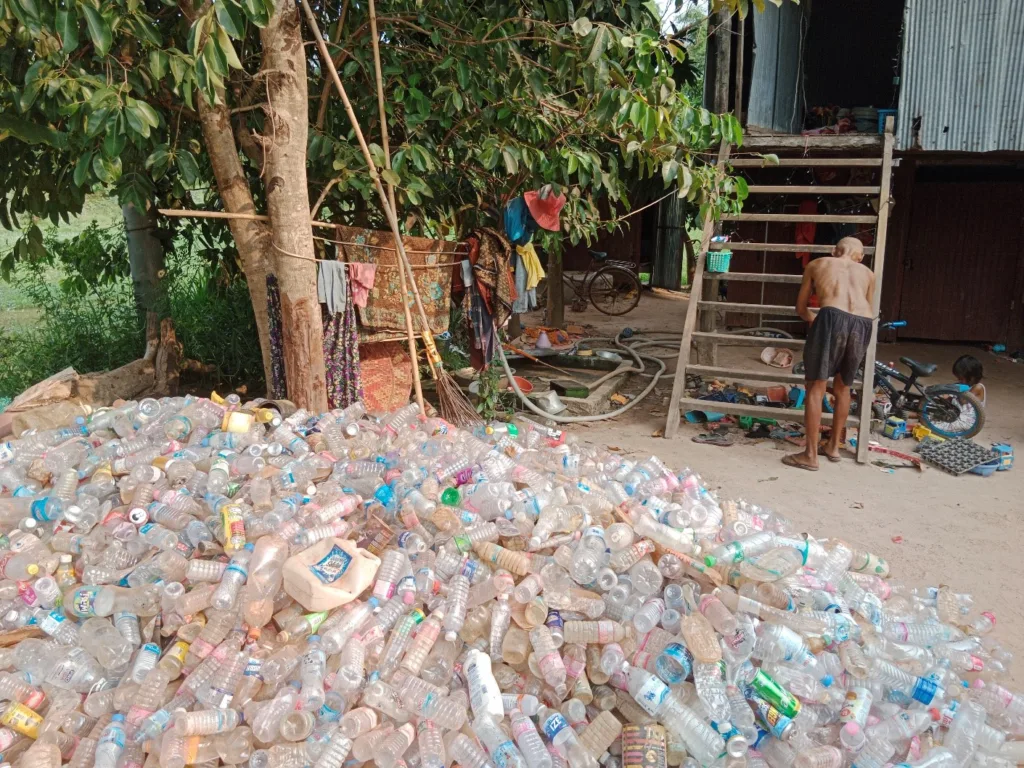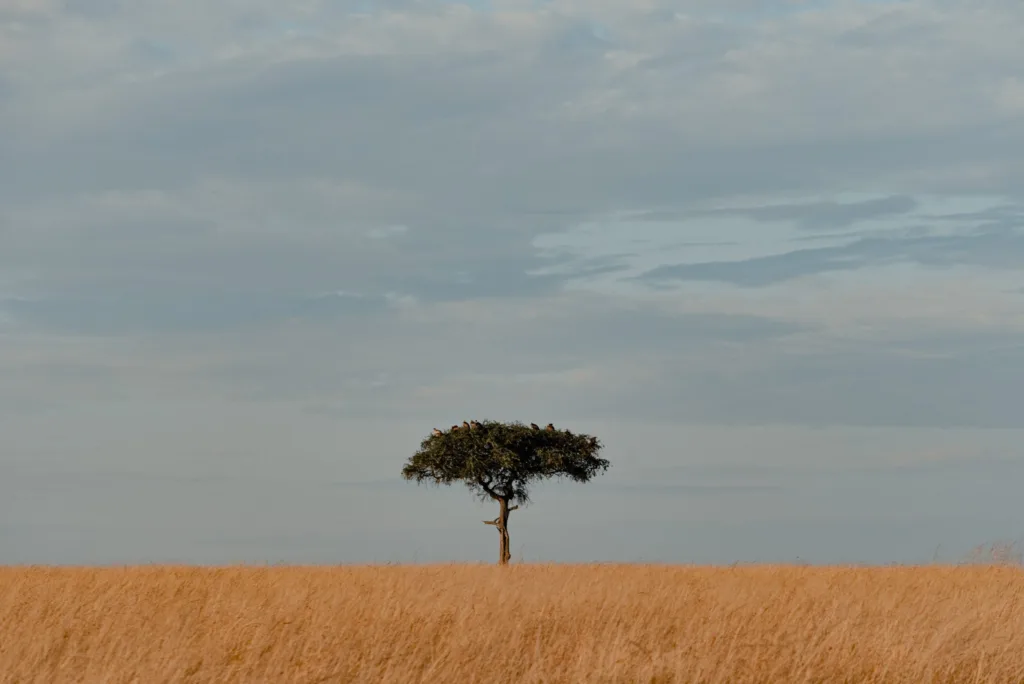Collecting Data in Cambodian Wetlands
On the 17th of April, data collection for Directed Research began with a large proportion of our students focusing on research questions related to a wetland site in Banteay Srei District. We had recently visited the site with Pannasastra University students where we had conducted preliminary surveys (see /blog/a-wetland-adventure). This time, however, we focused in more detail on both qualitative and quantitative data collection in the area. This included extensive interviews by Dr. Georgina Lloyd and her students with locals to explore community usage and customary management of the Lake and wetland, and my team who focused on ecological and limnological data collection at the site.
This semester we have focused a lot of our field research on wetlands. Wetlands are such important ecosystems as they protect and improve water quality, provide fish and wildlife habitats, store floodwaters, and maintain surface water flow during dry periods. Many local people and wildlife depend on these wetlands so it is integral that these areas are monitored and remain healthy.
My students focused on a variety of aspects of wetland health. The area has undergone extensive damage from forest clearing since the 1980’s for agricultural practices, and continues to have high levels of human disturbance; however it is a beautiful landscape despite the lack of forest cover.
Each student focused on different indicators of wetland ecosystem health. One student studied the abundance and diversity of fish species in the lake, comparing nocturnal and diurnal fish abundance and species composition.
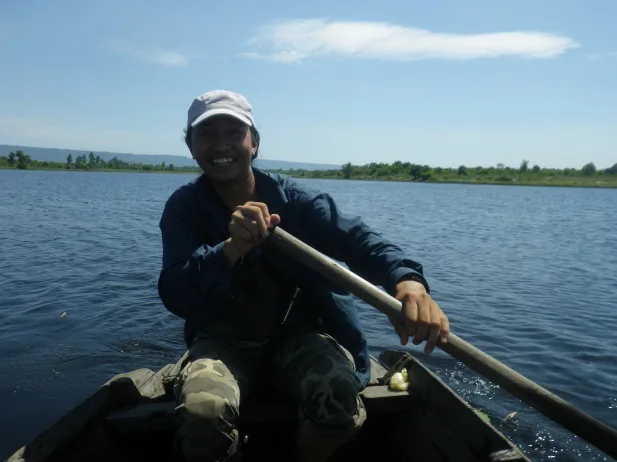
Sulaiman paddling Goma out to collect her fish
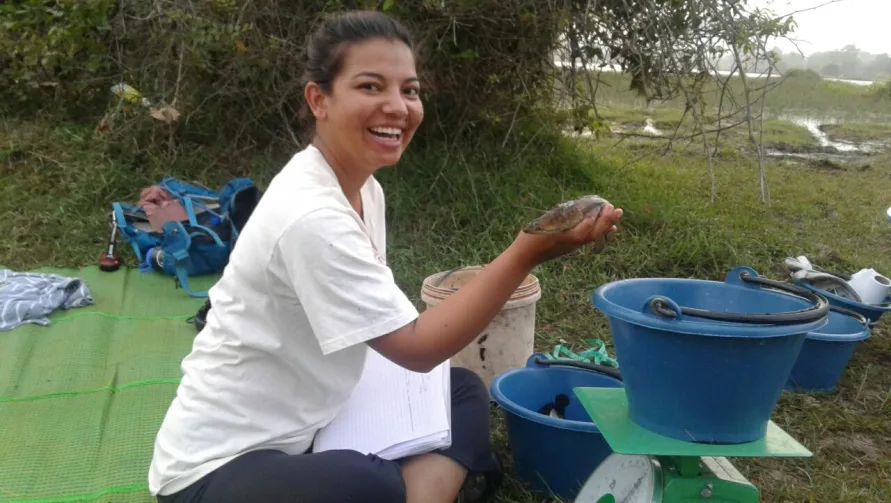
Goma measuring her fish
The second student measured quantities of soil nutrients including N, K and P, and assessed soil composition (e.g. silt, sand, clay). Local people that utilize the area for agriculture were also interviewed about their use of fertilizers and pesticides to determine the impact that this may have on soil quality.
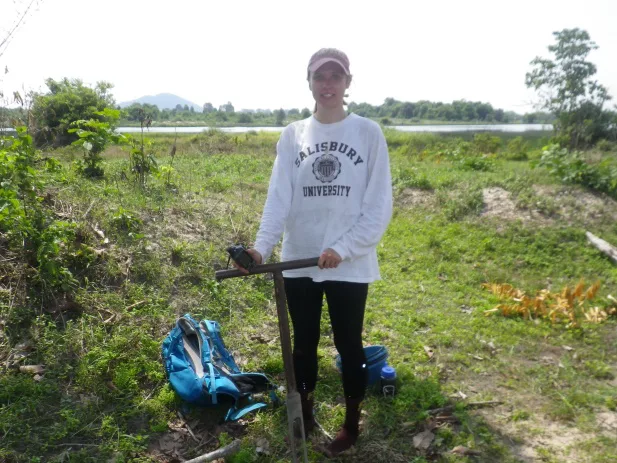
Sandra using an auger to obtain soil cores
The third student focused on water quality by testing dissolved oxygen content and how this varied between different locations (spring, lake edge and lake center), lake depth, turbidity and conductivity was also measured. Water samples were collected over five days and sent to the wonderful team at Pannasastra University led by Dr. Irina Chakraborty, to further explore the abundance of E.coli in the water and nitrate abundance to evaluate the influence of bovine use of the area and fertilizer run off.
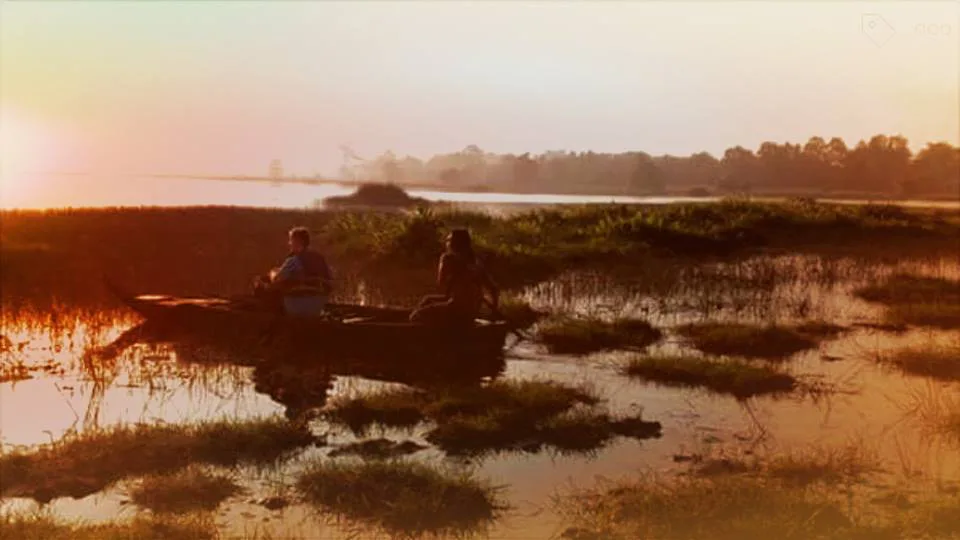
Tori collecting her dissolved oxygen samples with Sulaiman at sunrise
My fourth student conducted water bird point count surveys and used small mammal traps and camera traps to assess mammal diversity and abundance at the site. He also had the task of designing a man-made island for the center of the lake to attract more migratory and rare bird species to the area for nesting in the future. As it was late dry season during this research period, comparative studies in the future to compare seasonal and inter annual variations in data will be very interesting.
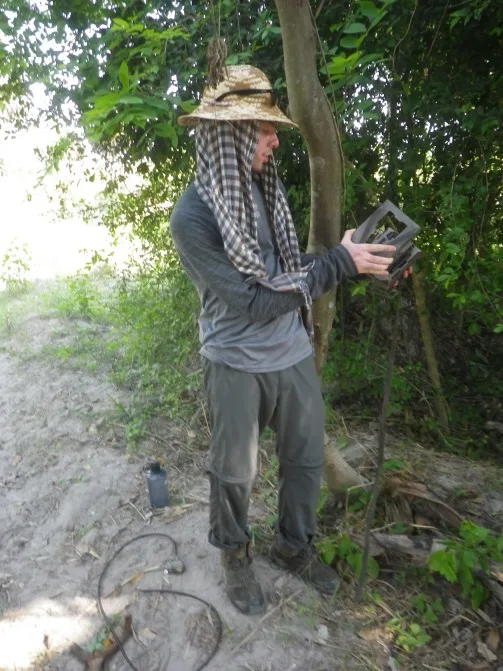
Evan setting his camera traps
During the data collection period we had the opportunity to be accompanied for a short time by Dr. Tri who is an Assoc. Prof. Ph.D. in Water Resources Management and Modelling and Head of the Department of Water Resources at the College of Environment and Natural Resources AND Research Adviser at the Research Institute for Climate Change at Can Tho University, Vietnam (!). Dr. Tri assisted our students with their fieldwork and provided advice on wetland ecosystems and explained the process of how to use GIS to map wetland areas. See below Dr. Tri’s comments on his visit with us, thank you Dr. Tri for all your help!
* * * * * * * * * *
‘My trip to Siem Reap, Cambodia aimed to help the SFS students with their study projects and was full of enjoyable moments. Even though the period was very short (from 20 to 24 April), lots of good experiences were exchanged. I also learned lots of new things including developing my understanding of the physical settings of the study area, culture of local communities and threats of local communities given the changes of the physical settings.
The first working day started with a morning of indoor activities where I taught students about QGIS and how to download DEM and other spatial data of the study area. The rest of the period was full of great experiences in the field e.g. exploring the soil and water nature of the study area, learning the history of land use and change, as well as enjoying the friendship of local people.
The deep impression in my mind is the working environment of the staff and students at SFS. They work professionally and seriously hard but there is never a lack of great fun. They are ready to start the day at 4.30 am and finish the field-working day at 6.00 pm. Can you imagine that?
Thanks for offering me such the great opportunity to be with you all.’
Dr. Van P.D Tri
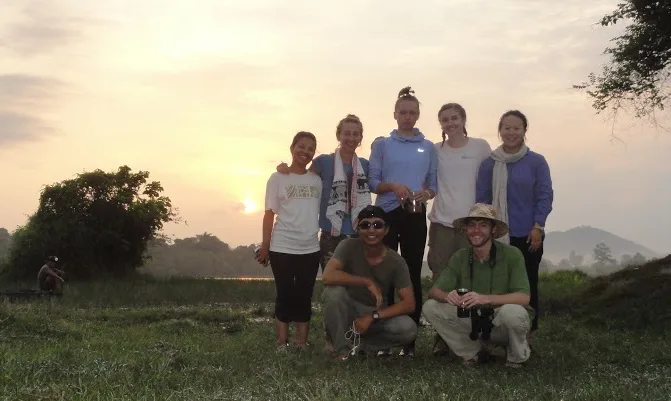
5am start to get to work by sunrise
* * * * * * * * * *
This was my first experience as a Principal Investigator for SFS and I enjoyed the experience so much, not only to be able to get out into the field and conduct useful research, but to be surrounded by such enthusiastic, persistent and tough students who, despite the searing temperatures and physically demanding conditions, remained in high spirits throughout the ten days. Thank you to those who collaborated with us including Dr. Tri and Dr. Chakraborty but also a HUGE thank you to our field assistants Sulaiman Ismail and Tony Yon. Hannah, our intern, and Peter, our Student Affairs Manager, your company and help were very much appreciated!
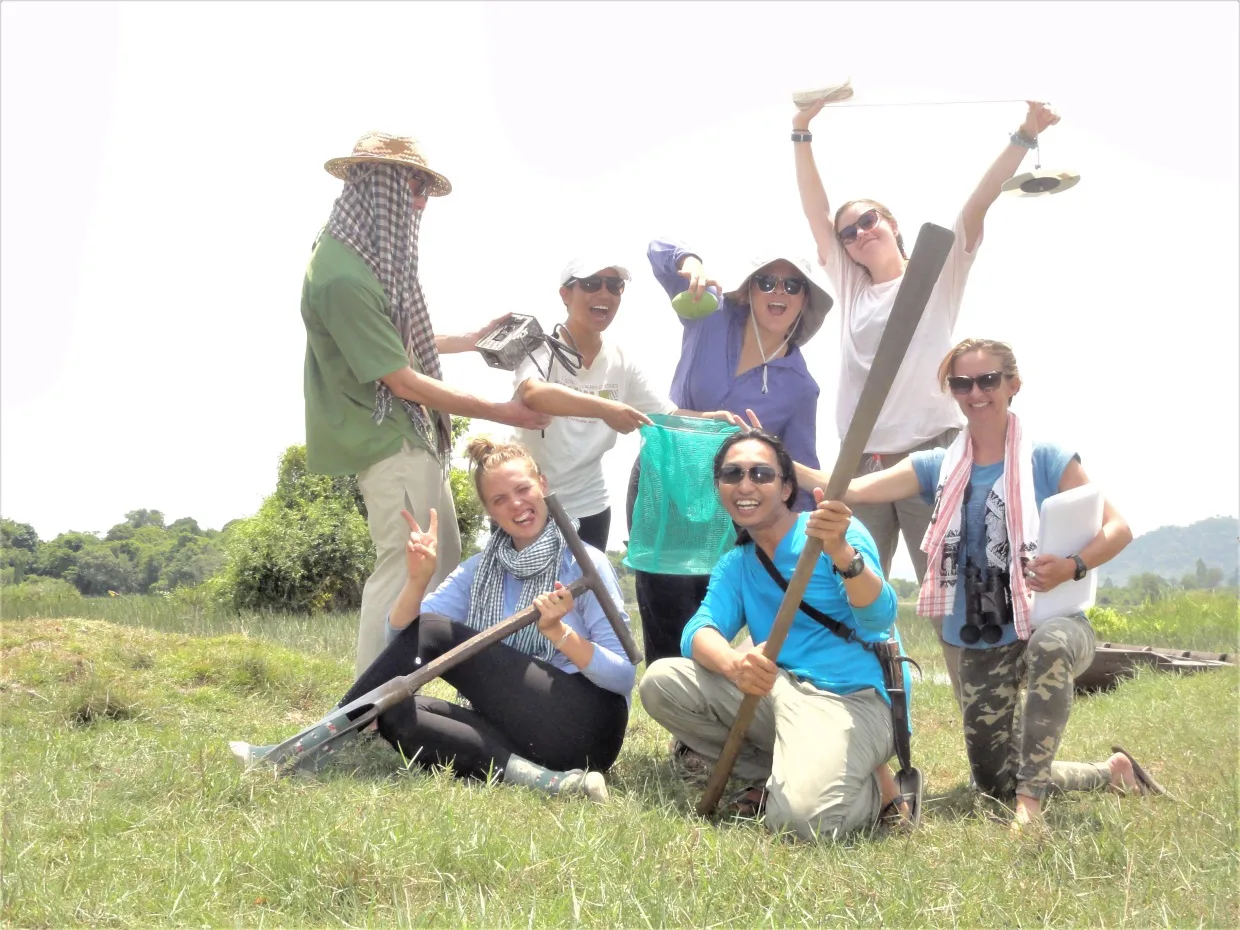
End of our last day of field work, each student with their equipment
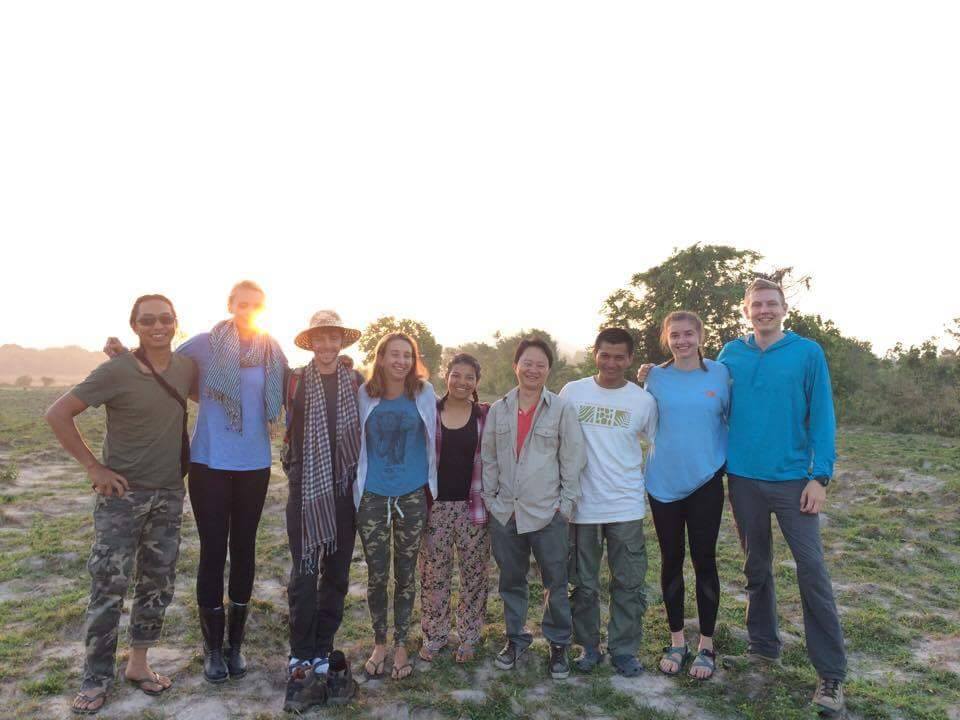
The group with Dr. Tri
→ Conservation, Ethics, and Environmental Change in Cambodia
Related Posts
